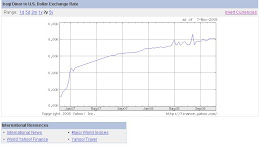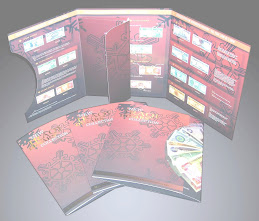The amended draft of the investment law, which was approved at, included 36 articles. They provided the formation of a body called "National Board for Investment" which has a moral character represented by its chairman or whoever he entitles. The Board will be responsible for forming the national policy for investment, designing plans and regulations as well as monitoring their application in the field of investment.
The Board will be specialized in investment projects that have a federal nature, administered by a board of directors composed of nine members, who are university professors, and the Cabinet will nominate its chairman and gives him the rank of minister and deputy chairman with the rank of Under-Secretary for five years, ratified by the Parliament. The Prime Minister will also appoint four general directors from among the nine members. The Law grants Parliament the right to discharge the chairman of the Board or his deputy at the request of the Prime Minister. The Center of the Board will be in Baghdad and appoint representatives in other regions and governorates.
The Law also grants the regions and provinces, joined in federation or not, the right to compose investment bodies within their territories that have the right to grant investment licenses, encourage investment and open branches in areas under their control" within the regulations of this law", in consultation with the National Board for Investment to ensure that all requirements are legal. The regional and provincial bodies will be made up of seven members, including the chairman and his deputy. Regional and provincial bodies will coordinate work with the National Board for Investment in consultation with local governments, regarding investment plans and facilities.
The Law states: "The Board will accept requests for clearance of investment projects whose capitals are not less than the minimum limit established by the Cabinet or the regional council of ministers; how ever, in case the value of the project exceeds 150 million dollars, the approval of the Cabinet is required". The Board will look into applications of projects licenses within a period of not more than 45 days from the date of submitting the application. The Board will have its own independent annual budget allocated to it from the State budget.
The law defined the Board's objectives by: "encouraging investment through the strengthening of confidence in the investment environment, defining investment opportunities, motivating investment, simplifying the procedures of registration and acquiring investment licenses as well as watching for existing projects and give them priority to be completed, in coordination with official bodies".
Other functions of the Board are "completing the procedures of answering requests for investors and obtain the necessary approvals for the investor and the project, establishing a single window at the National Board for Investment and other regions and provinces comprising delegates accredited by the ministries and members nominated by provincial and district councils according to the conditions and relevant authorities. Also, granting licenses and obtain approvals from other parties in accordance with the law, in addition to providing advice to investors and develop programs to promote investment in the different regions of Iraq to attract investors" , as well as facilitate the allocation of land and rent it for setting up projects in return for a sum determined by the Board in accordance with the relevant authorities, in addition to working on the establishment of safe and free investment areas with the consent of the Cabinet".
The Law further provides that the Board "facilities and grants loans to Iraqi investors on condition they operate manpower commensurate with the size of the loan value". "The investor enjoys all benefits and guarantees and submits to obligations contained in this Law regardless of his nationality. Iraqi and foreign investor has the right to possess land for the purposes of housing projects without speculating it, according to rules set by the Board and with the consent of the Cabinet. The ownership of the housing units may be given to Iraqis after the completion of the project. According to this law, the investor will enjoy the privileges of taking out the capital that he brought into Iraq along with its profits, according to the instructions of the Central Bank after paying all of his obligations".
The law also gives foreign investors the right to" trade in the markets of securities, stocks and bonds, in addition to the composition of investment portfolios in stocks and bonds, as well as leases land for projects as long as the investment project exists but for not more than 50 years, renewable according to the approval of the Board". Foreign investors will also be given the right to insure their projects in insurance companies, and open accounts in Iraqi or foreign currency in different branches of banks in or outside Iraq.
The law ensures that the priority of recruitment and use of employees is for Iraqis, in addition to granting foreign investors and employees, in investment projects, the right of abode in Iraq and facilitate their entry and exit to and from Iraq. Also, ensuring that the project will not be confiscated or nationalized except what comes in a judicial sentence. According to the law "The investor will have commitments; for he will have to notify in writing the board of the region or province immediately after the completion of the installation of the project and the date of starting the commercial work, in addition to briefing the Board with documents, records and a feasibility study if requested".
"The project licensed by the Board will get exemption from taxes and duties for 10 years from the date of operating it according to the developed areas identified by the Cabinet. The years of exemption will increase up to 15 years if an Iraqi investor contributes in the project by 50%".
"The imported materials for the licensed investment projects will be exempted from customs duties for 3 years from the date of granting the investment license. Also, exempt materials imported for the purpose of expanding projects of fees on condition of entering the country within a period of less than three years from the date of notifying the Board of the expansion of the project, and exempt spare parts imported for the project from charges on condition that their value does not exceed 20% of the value of the existing materials on condition that the investor will not use them for purposes other than that for which they were imported".
The law gave" projects of hotels, tourism establishments, hospitals and health institutions, rehabilitation centers and educational institutions the right to import furniture, furnishings and supplies for renewal once every four years to be used in the project. If it is proved that any of these imported materials, which are exempt from customs, were illegally sold, the investor will have to pay fees and taxes, consequently". The Law includes rules to settle the disputes on projects and their financing methods and Iraqi laws will be applied to them, in addition to explaining the legal procedures for the granting licenses to a project. (Source)AlBayan


